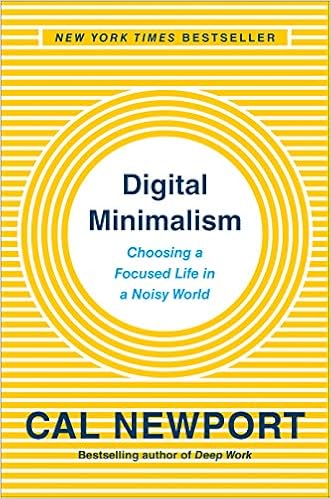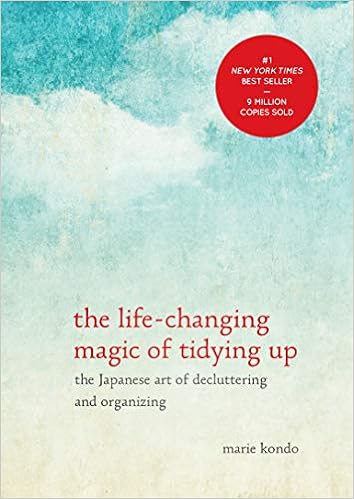When life feels complicated, it’s important to bring focus back to the basics. What do we care about? What do we live for? What steps can we take every day to pursue the life we want? We can all do better by cutting out distractions and focusing on fundamentals…

Focusing on Fundamentals
“Focusing on fundamentals” is a phrase that really resonates with me. If you get the fundamentals right, the rest follows.
My dad used to talk about fundamentals with succeeding in sports. “You win games with lay-ups and free-throws.” “Defense wins championships.” Deliver on the fundamentals, and winning follows.
An old work colleague of mine used to describe “executing on the fundamentals” as the most important thing we could do for the business. Deliver on the fundamentals, and the business grows.
In other words, there’s no fancy secret to happiness or success. It’s just focusing on the fundamentals and continuing to press forward on those day after day. As in, trying to make each day as good as possible.
With life, though, the fundamentals are open for us to define. We all share some basics values: health, friends, family. But which are most important to us?
Lately, I’ve been trying to reduce focus on things I don’t care about, and bring back focus on things I do care about. For me, that means loving my wife, supporting my family, making positive contributions to the world, and being a good person, as best I can.
Digital Minimalism
One area where I’m trying to improve is digital distraction. I wrote about distracted parenting last year in this article: I Sometimes Wear Airpods While Watching My Kids: Hear Me Out. I wrote that distracted parenting is sometimes justified — certainly, we don’t think that *zero* distraction is the right answer, do we?
But, as I’ve reflected on that article, I recognize that distracted parenting is not something that I want to strive for. It’s not something that I feel good about anymore. In fact, it’s something that I’m now actively working to fully cut out of my life, as best I can.
I read an incredible book this year on reducing digital distraction, Cal Newport’s Digital Minimalism: Choosing a Focused Life in a Noisy World. The book is about how to reduce distraction and increase focus on non-digital pursuits, like real conversation, in-person interactions, and more fulfilling social relationships.

Newport describes Digital Minimalism as follows:
Digital Minimalism. A philosophy of technology use in which you focus your online time on a small number of carefully selected and optimized activities that strongly support things you value, and then happily miss out on everything else.
Cal Newport (2019), Digital Minimalism: Choosing a Focused Life in a Noisy World, Penguin Random House LLC, page 28. Emphasis in original.
For Newport, it’s about living a deliberate life rather than a distracted life. In a deliberate life, we *choose* what to focus on, rather than letting outside influences (like our social media accounts) choose for us. And, we should choose real human interaction over less fulfilling connections of texting and social media. He shares ideas from David Thoreau on living a deliberate life, while recognizing and incorporating the benefits of modern technology in a minimally distracted way.
So, in the advice of Newport, I’ve significantly cut down digital distraction. I’ve cut out nearly all of my phone notifications, social media alerts, anything that can take away my autonomy to focus on my own life. It’s not perfect yet, but it’s a wonderful improvement so far.
The Art of Tidying Up
The second area where I’m trying to declutter is in our home. We’re selling out house and moving this summer, which kicked off a decluttering exercise. My wife watched a few episodes of Netflix’s recently popular Tidying Up with Marie Kondo, which resulted in me reading Kondo’s book: The Life-Changing Magic of Tidying Up: The Japanese Art of Decluttering and Organizing.

The book is all about how to remove things from your life that don’t bring you joy. Whether clothes, books, papers, or other things, anything that doesn’t bring you joy has to go. Kondo writes:
“…I came to the conclusion that the best way to choose what to keep and what to throw away is to take each item in one’s hand and ask: “Does this spark joy?” If it does, keep it. If not, dispose of it.“
“When you come across something that you cannot part with, think carefully about its true purpose in your life. You’ll be surprised at how many of the things you possess have already fulfilled their role. By acknowledging their contribution and letting them go with gratitude, you will be able to truly put the things you own, and your life, in order. In the end, all that will remain are the things that you really treasure. To truly cherish the things that are important to you, you must first discard those that have outlived their purpose.“
Marie Kondo (2014), The Life-Changing Magic of Tidying Up: The Japanese Art of Decluttering and Organizing, Ten Speed Press Berkeley, pages 41, 61. Emphasis in original.
So simple, but so powerful. We’ve already been enjoying some of the initial benefits associated with tidying up. We’ve thrown out and packed up dozens of trash bags and boxes already. We’re buying fewer toys for our own kids and for birthday parties, opting for clothes or books instead. I’m trying to reduce the things I own to only the things I truly want or need.
We have a ways to go, but it feels great so far. Much better than when our kitchen is out of control.
Focusing on What Matters
The parallels between Digital Minimalism and Tidying Up are worth thinking about. They’re both aimed at helping us focus on what’s important by cutting out what’s unimportant. In discarding the unimportant, I’m hoping to focus even more on the fundamentals that matters to me most: my family, my health, and my closest relationships.

Final Thought
Cutting out the excess and focusing on fundamentals is an area where we can all do better. I’ll end with another quote from Marie Kondo, for those of you still reading to the bottom:
“You, on the other hand, have been led by fate to read [this], and that means you probably have a strong desire to change your current situation, to reset your life, to improve your lifestyle, to gain happiness, to shine. For this very reason, I can I can guarantee that you will be able to put your house in order. The moment you picked up this book with the intention of tidying, you took the first step. If you have read this far, you know what you need to do next.“
Marie Kondo (2014), The Life-Changing Magic of Tidying Up: The Japanese Art of Decluttering and Organizing, Ten Speed Press Berkeley, page 203. Emphasis added.
Related articles: